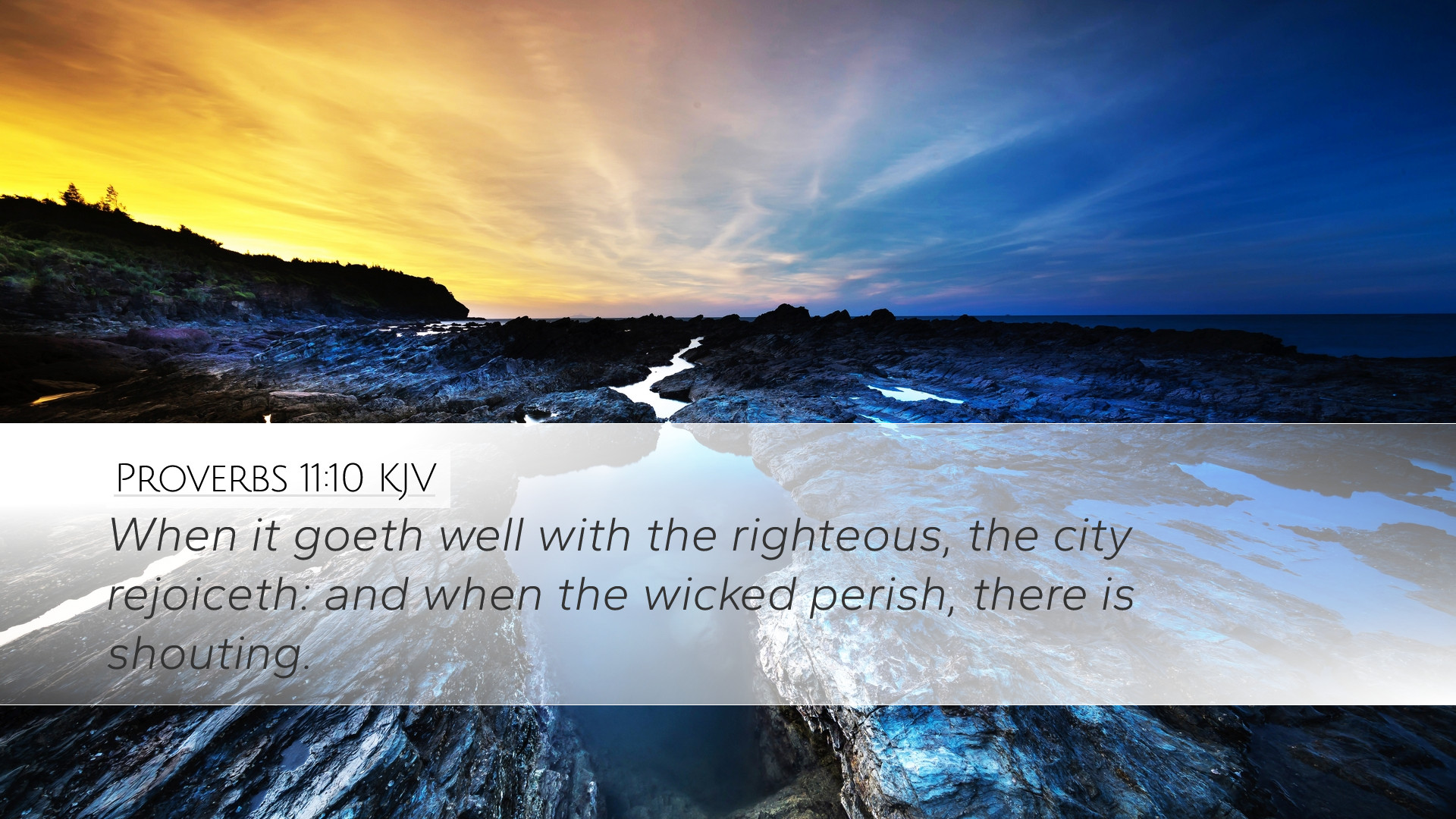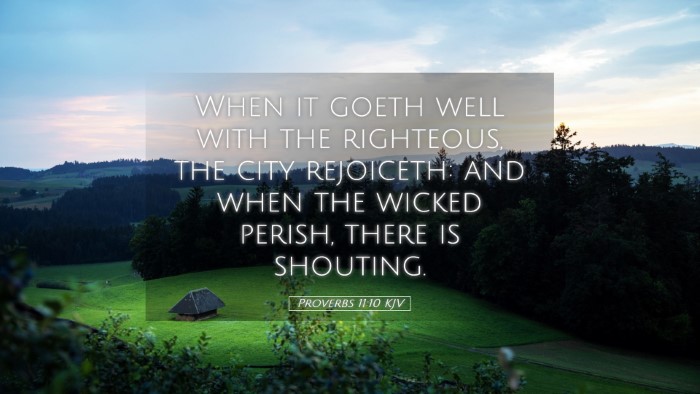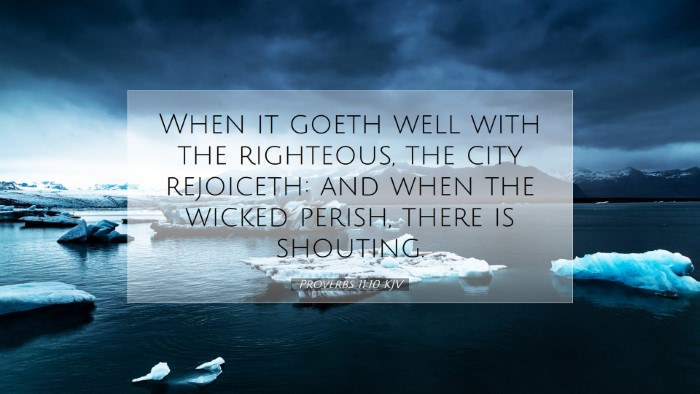Commentary on Proverbs 11:10
Verse Reference: Proverbs 11:10 - "When it goeth well with the righteous, the city rejoiceth: and when the wicked perish, there is shouting."
Overview
This verse articulates a profound truth about the moral order of society and its relationship with righteousness. The joy or sorrow of the city is directly linked to the fate of the righteous and the wicked. In this commentary, we draw insights from esteemed public domain commentaries such as those of Matthew Henry, Albert Barnes, and Adam Clarke, to deepen our understanding.
Insights from Matthew Henry
Matthew Henry emphasizes that the overall state of a community is deeply affected by the wellbeing of its virtuous members. He writes:
"When it goeth well with the righteous." He interprets this as a blessing that extends beyond individual prosperity to encompass the welfare of the entire city. The joy of the city, therefore, springs from the collective blessings that follow the righteous. A spiritually and morally upright populace leads to societal happiness, fostering harmony and stability within the community.
Henry also notes the cheerfulness that arises in a city when the wicked face judgment and perish. This reflects a divine order where justice is not only served but celebrated, indicating that the righteous find contentment in the downfall of evil:
"...when the wicked perish, there is shouting." Henry explains that this shouting represents a collective acknowledgment of God’s justice, reinforcing the idea that righteousness must prevail for true joy to exist within any community.
Contributions from Albert Barnes
Albert Barnes adds depth by focusing on the implications of this verse in light of social dynamics. He translates the outcomes described in the proverb into consequences that encompass emotional and spiritual dimensions:
"The city rejoices." He elaborates that the city's joy is not merely an emotional response but reflects a recognition of God’s providence and goodness. The flourishing of the righteous leads to stability that benefits all, which suggests a societal interdependence based on moral character.
Barnes also connects the fate of the wicked with a broader eschatological perspective:
"When the wicked perish, there is shouting." This denotes a fulfillment of divine justice, assuring believers that God actively works against the forces of evil. The demise of the wicked not only brings relief but also reinforces faith in a just God who upholds righteousness.
Reflections by Adam Clarke
Adam Clarke's commentary sheds light on the psychological and moral implications of the verse. He observes a significant correlation between the state of the righteous and the relational atmosphere within the community:
"When it goeth well with the righteous..." Clarke indicates that the prosperity of the righteous acts as a harbinger of health for the community, suggesting that their virtue naturally fosters a climate of positivity and mutual support.
On the other hand, Clarke discusses the societal implications when the wicked perish:
"...there is shouting." He interprets this as a natural, joyous reaction to the removal of evil influences, signifying a hope rekindled among those who value righteousness. Thus, the falling of corrupt individuals represents an opportunity for renewal and a return to moral clarity.
Theological Applications
- Righteousness as a Community Foundation: This verse serves as a reminder that the welfare of a city (or community) is innately tied to the virtue of its citizens. A call for righteous living reflects a responsibility not just to oneself, but to others.
- Divine Justice: The contrast between the fates of the righteous and the wicked speaks volumes about the nature of divine justice. Within this framework, believers are called to trust in God's timing and sovereignty over the unfolding of history.
- The Role of Celebration: The communal response to the rise and fall of moral character illustrates the importance of celebrating justice and righteousness within the church and society. It is an invitation to cultivate environments where righteousness is honored.
Conclusion
Proverbs 11:10 encapsulates a significant truth about the interconnectedness of personal virtue and communal wellbeing. The insights from Matthew Henry, Albert Barnes, and Adam Clarke highlight the profound implications of this verse for individuals, communities, and the broader context of justice. For pastors, theologians, and scholars, these reflections are not only a call to personal righteousness but also a responsibility to foster environments that resonate with the joy and justice depicted in this wisdom literature.


